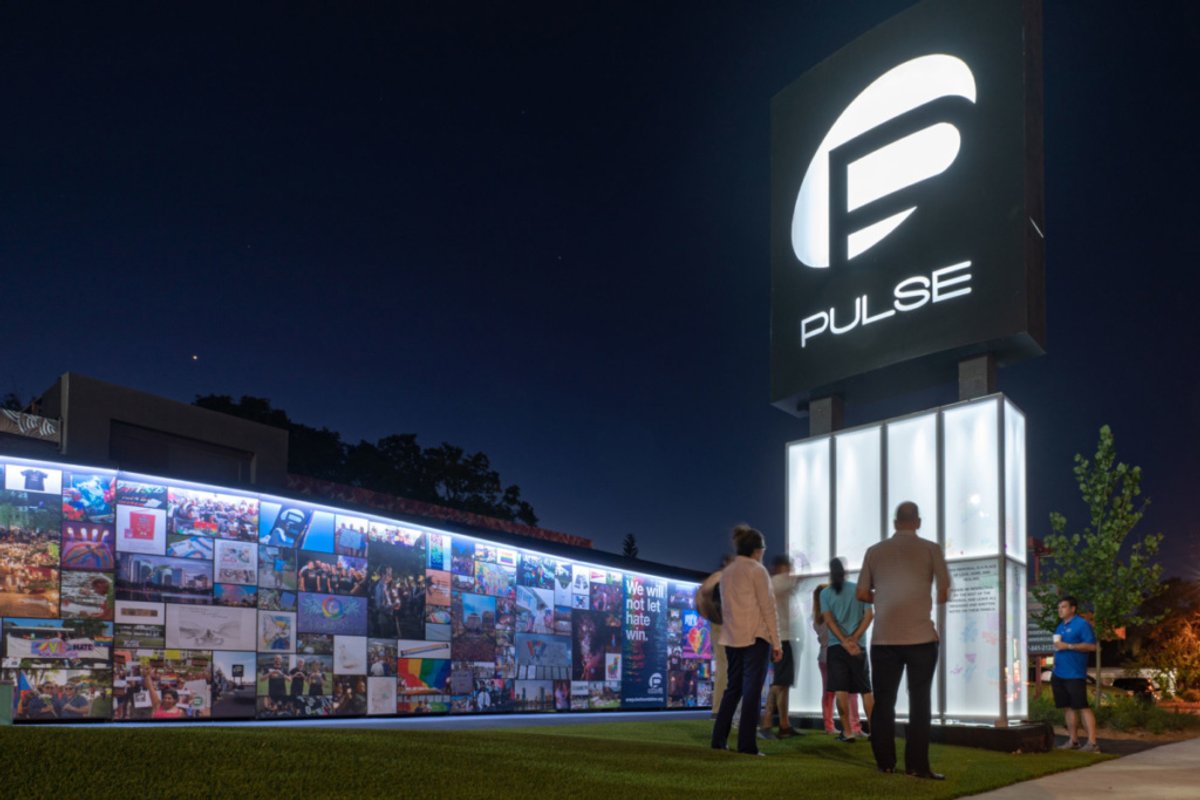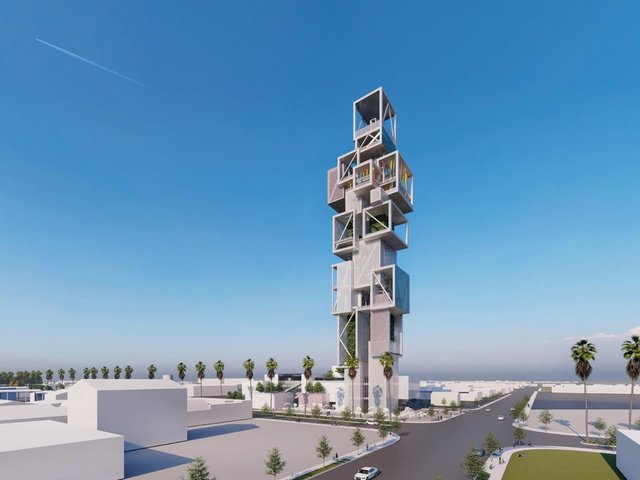A group of queer activists, survivors and family members of victims of the 2016 Pulse nightclub shooting in Orlando, the deadliest attack against the LGBTQ community in the US, have opposed plans for a museum on the site. “We humbly ask the public, as well as all private and corporate donors, to give their money to organisations that provide lifetime care to survivors and not towards the expensive museum project,” the Community Coalition Against a Pulse Museum says in a mission statement on its website. “Put people first. We care more about our survivors than educating tourists.”
The group were moved to action after the Orlando Sentinel reported that $40m would be spent on designs and construction of the new museum, $2m on staff salaries—including $150,000 a year for Barbara Poma, the nightclub’s former owner and the CEO of the OnePULSE foundation behind the project—and that the museum would be expected to draw more than 300,000 visitors a year, many from outside central Florida. Local lawmakers have since pushed for an independent audit of the organisation, which is now underway.
Emotions surrounding the museum project and Poma’s continued involvement, have been growing more heated since a group of survivors and victim’s families sued Poma and her husband last year for negligence, saying they did not provide enough security at the LGBTQ club. (Poma opened the club in memory of her brother who died of Aids.) Christine Leinonen, whose son Drew Leinonen died in the shooting, started the campaign to shut down the museum proposals with a petition on Change.org that has received more than 45,000 signatures. “They’re not honoring my son,” she told the Orlando Weekly. “They're making it into a spectacle, a circus. My son is not a tourist attraction. He lived his life with honor, with dignity, with character.”
Following an international competition, a shortlist of six high-profile architecture firms and artists was announced in May to create concept designs for a memorial and “Survivors Walk” at the site of the nightclub as well as a museum nearby. The finalists were Coldefy & Associés working with RDAI, Xavier Veilhan, Ducks Scéno, Agence TER, and Laila Farah; Diller Scofidio + Renfro and Rene Gonzalez Architects working with Raymond Jungles, Inc; Heneghan Peng architects working with Gustafson Porter + Bowman, Sven Anderson, and Pentagram; the MASS Design Group, working with Ralph Appelbaum Associates, Sasaki, Sanford Biggers, Richard Blanco, Porsha Olayiwola; MVRDV working with Grant Associates, GSM Project and Studio Drift; and Studio Libeskind working with Claude Cormier + Associés, Thinc, and Jenny Holzer.
“Over the next few months, the design teams will meet with onePULSE leadership, a victim liaison, and a survivor to help inform their proposals,” the foundation said at the time of the shortlist was announced. A public exhibition of designs was due take place in October 2019 at the Orange County Regional History Center in Orlando, when the winning team would also be named. The memorial and museum were scheduled to open in 2022.
In a statement, the onePulse Foundation said: “We respect the thoughts and opinions of everyone in the community who was affected by this tragic event and are taking them all into consideration on how we move forward.”
“We think that the nightclub should be torn down. If a memorial is built in its place, it should only be done if the property is acquired by the city, state, or federal government,” the community coalition says in their statement. “All fundraising efforts associated with Orlando's mass shooting need to be directed towards providing lifetime care to survivors.”



